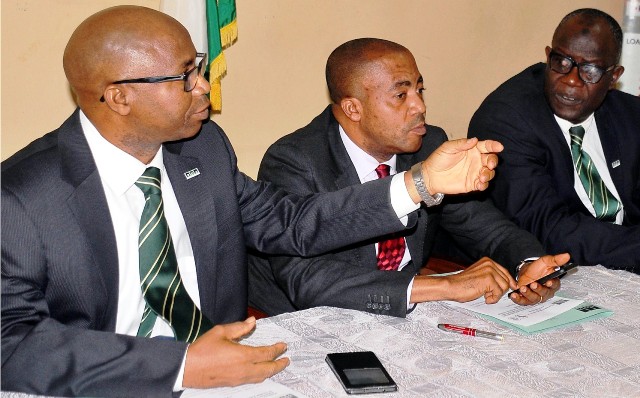Business
Buhari Cautions On ECOWAS Single Currency Implementation

President Muhammadu Buhari has urged ECOWAS member countries to tread carefully in pushing for a single currency in the sub-region by 2020.
Mr Femi Adesina, the President’s Special Adviser on Media and Publicity, said Buhari stated this at the 4th meeting of the Presidential Task Force on the ECOWAS Currency Programme in Niamey, Republic of Niger.
The President drew attention of ECOWAS member countries to the challenges faced by the European Union in realising the same goal.
According to him, the necessary economic fundamentals among countries continue to differ over the years, making it more difficult to pull through with the project by 2020.
“Nigeria advises that we proceed cautiously with the integration agenda, taking into consideration the above concerns and the lessons currently unfolding in the European Union.
“To that end, Nigeria will caution against any position that pushes for a fast-track approach to monetary union, while neglecting fundamentals and other pertinent issues,’’ he said.
The Nigerian leader noted that some of the obstacles to realising the roadmap for the implementation of a single currency include diverse and uncertain macro – economic fundamentals of many countries and unrealistic inflation targeting based on flexible exchange rate regime.
According to him, inconsistency with the African Monetary Co-operation Programme is another obstacle to the realisation of the roadmap.
The President said domestic issues in ECOWAS member countries relating to their constitutions and dependence on aids continue to affect the framework for implementing the single currency in the sub-region.
He observed that the ECOWAS Commission had anchored its pursuit of the new impetus to monetary integration on the information presented to the Heads of State, which were the basis for their recommendations.
He said: “We are concerned that we have not properly articulated and analyzed a comprehensive picture of the state of preparedness of individual countries for monetary integration in ECOWAS by 2020.
“In previous meetings, we had specifically raised observations on the state of preparedness of the member states, the credibility of the union if anchored on watered down criteria, and the continuing disparities between macroeconomic conditions in ECOWAS countries, amongst others. And I would like to reiterate this concerns.’’
The President Buhari told the Heads of State that the conditions that pushed Nigeria into withdrawing from the process in the past had not changed.
“Nigeria had earlier withdrawn from the process because its key questions and concerns were ignored and till date, none of the issues has come up as an agenda issue to be considered by the Taskforce.
Business
Fidelity Bank To Empower Women With Sustainable Entrepreneurship Skills, HAP2.0
Business
President Tinubu Approves Extension Ban On Raw Shea Nut Export
Business
Crisis Response: EU-project Delivers New Vet. Clinic To Katsina Govt.
-

 News3 days ago
News3 days agoAmend Constitution To Accommodate State Police, Tinubu Tells Senators
-

 Politics3 days ago
Politics3 days agoSenate Urges Tinubu To Sack CAC Boss
-

 News2 days ago
News2 days agoDisu Takes Over As New IGP …Declares Total War On Corruption, Impunity
-
Business3 days ago
President Tinubu Extends Raw Shea Nuts Export Ban To 2027
-
Business3 days ago
Crisis Response: EU-project Delivers New Vet. Clinic To Katsina Govt.
-
Business3 days ago
President Tinubu Approves Extension Ban On Raw Shea Nut Export
-
Sports3 days ago
NDG: Rivers Coach Appeal To NDDC In Talent Discovery
-
Rivers3 days ago
Etche Clan Urges Govt On Chieftaincy Recognition

